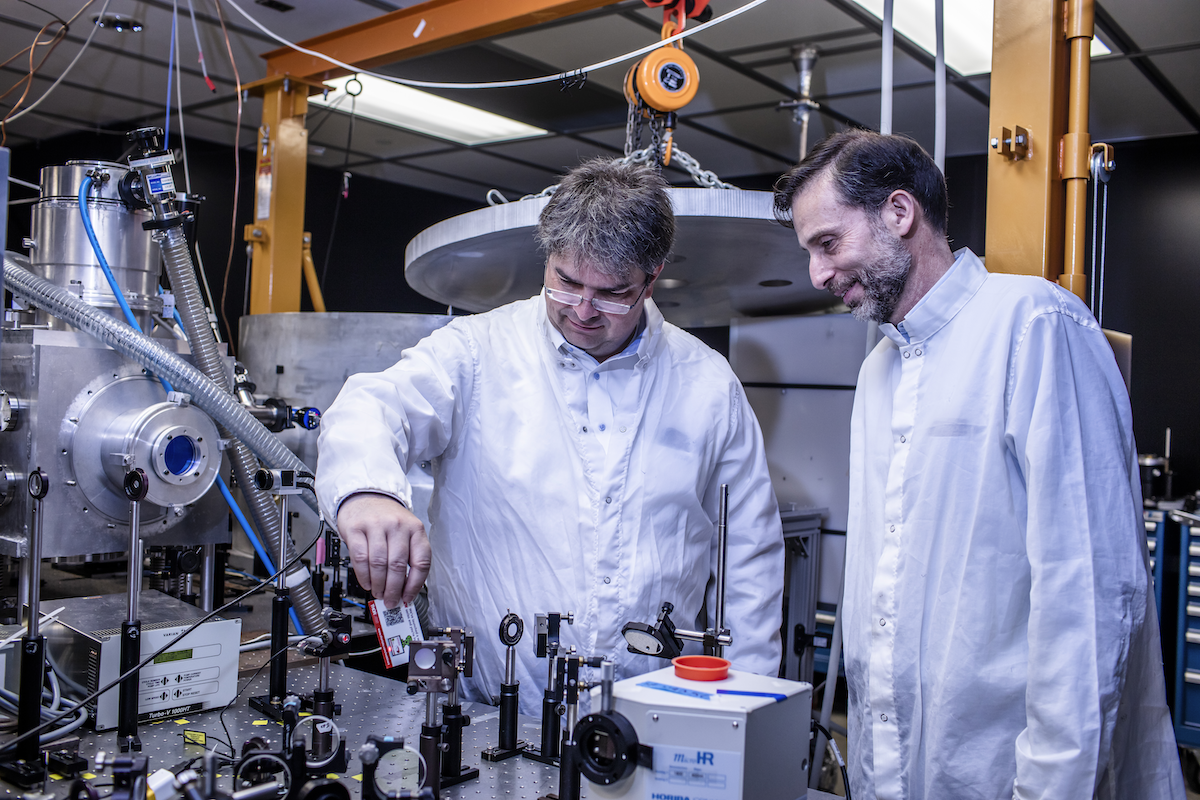The world’s largest particle accelerator, the CERN’s large hadron collider, is massive. It takes up 27 kilometers under Switzerland and France and it cost billions to build. Their sheer size and cost is why there are only five particle accelerators of this kind — X-ray free electron laser (XFEL) accelerators— in the world.
TAU Systems wants to make XFEL particle accelerators that are just about 25 meters long — and they’ve just raised a $15m seed round to do it. This “will translate into a 50 to 100 times lower cost for the system compared to a conventional particle accelerator facility,” says Björn Manuel Hegelich, the CEO.
Smaller and cheaper particle accelerators will be much easier to install, making them accessible for commercial use rather than being the exclusive realm of a few scientists.
The investment came from Lukasz Gadowski, founder of Delivery Hero.
“I am one hundred percent convinced that TAU Systems and its new generation of particle accelerators will soon be indispensable to science,” Gadowski tells Sifted. “My mission is to invest in companies that generate profound and lasting societal value.”
Particle accelerators allow us to study subatomic particles by looking at what happens when they crash into each other at near-light speed. They currently need to be kilometres long to reach this speed.
TAU Systems gets around this by using ultra-high-intensity lasers to accelerate particles in a plasma state. “The result is unprecedented levels of particle acceleration in a plasma, matching the particle energy levels of large-scale accelerators,” Hegelich explains.

The startup, founded in 2021, will operate in France, the UK and Germany as well as eastern Europe — Romania, the Czech Republic and Hungary are part of a network of laser facilities. In the US, TAU will operate from its Austin headquarters, as well as San Diego and San Francisco.
TAU’s technology could bring breakthroughs to a wide range of sectors. In the short term, it could be used to inspect metal smelting operations or for quality control in manufacturing of things like medical implants or aircraft engines. It could also perform medical imaging, such as CT scans, using only a fraction of the current radiation dose.
In the biotech industry, these compact accelerators could increase access to medical research methods that aren't commercially available. “These methods not only directly enable development of new diagnosis, drugs and vaccines, combating for example Alzheimer’s, Parkinson’s or targeting longevity,” says Hegelich. It would allow drugs to be designed rather than found through screening millions of compounds.
In the long term, the technology could be used in nuclear fusion plants with no risks of nuclear accidents. “We could stop energy production safely and instantaneously by stopping the particle accelerator,” says Hegelich. The accelerators could also reduce the time that nuclear waste needs to be stored, from hundreds of thousands of years to just a few decades.
TAU Systems aims to start selling its first products in 2024, to open a centre where clients can use its particle accelerator services by 2026, and to sell full particle accelerators by 2027.


